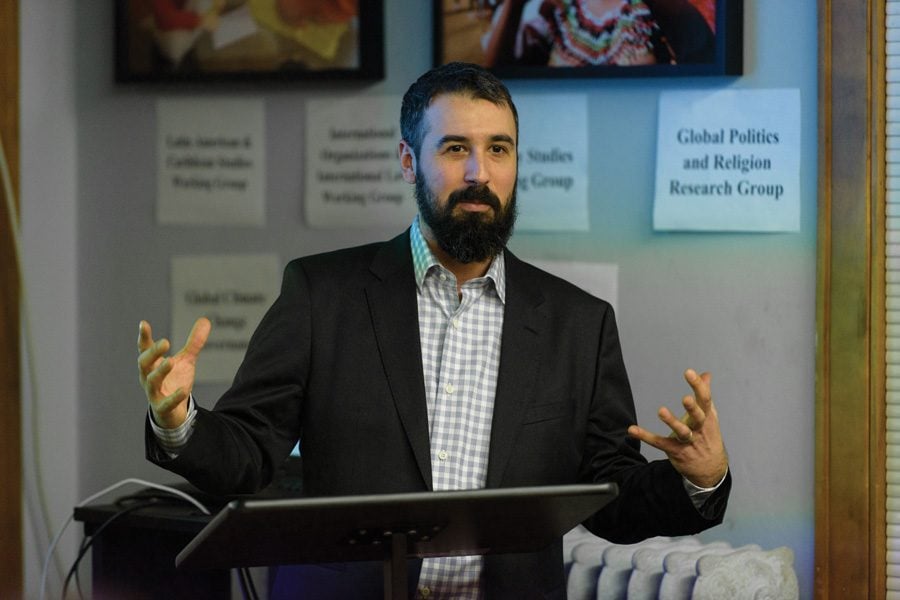Global water fellow discusses whether access to water is human right
Jeffrey Wang/Daily Senior Staffer
Global water fellow Michael Tiboris talks about water security at an event at the Buffett Institute for Global Studies. Tiboris, a global water fellow at the Chicago Council on Global Affairs, serves as a public fellow at the American Council of Learned Societies.
January 27, 2017
A global affairs expert Michael Tiboris debated whether access to water is a human right at a Buffett Institute for Global Studies discussion on Thursday.
Tiboris addressed about 25 people on issues related to worldwide water distribution as part of a Buffett Institute series on human rights issues. Tiboris is a global water fellow at the Chicago Council on Global Affairs, and also serves as a public fellow at the American Council of Learned Societies.
Understanding worldwide discrepancies in access to clean water is important for all people across the world — and in the United States in particular, given the recent water crisis in Flint, Michigan, said SESP sophomore Jessica Saffold, an undergraduate fellow at the Buffett Institute who helped organize the event.
“Access to clean water is something that we may think is kind of an issue that’s more global, (but) it’s also a local issue,” she said. “Letting people engage with that issue is super important.”
During the event, while assessing both arguments as to whether humans have an inherent right to water, Tiboris said the answer is more complicated than “absolutely” yes. He said if water is considered an inherent right, then states should be obligated to uphold that right through redistribution efforts to provide water in areas of need.
In reality, however, water is not always thought of as a human right, he said. Rather, it can be seen as a good or service.
Making contaminated water usable requires considerable economic resources, Tiboris said. Although some countries do not have the resources to produce clean water, it is not the responsibility of “water-rich” states to redistribute an economic good to places that experience water stress or scarcity, he said.
Still, there is a moral obligation to assist people without access to clean water, Tiboris said. But if it is considered an economic good, then it should be the responsibility of non-governmental organizations, not states, to provide it, he said.
“People deserve our help,” Tiboris said. “And we can do something about it.”
Weinberg freshman Ivy Chen, who attended the event, said she felt she had learned a lot from Tiboris’ discussion.
“I came in very ignorant about water rights, so it was very informative and also very accessible,” Chen said.
Email: [email protected]
Twitter: @_janeyun


